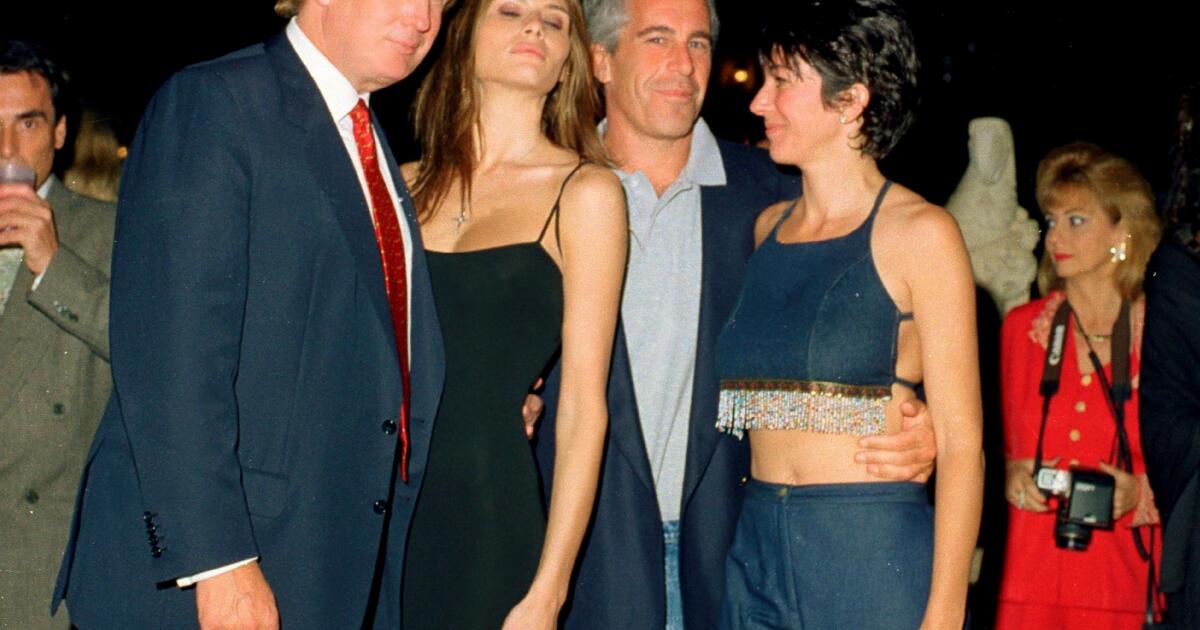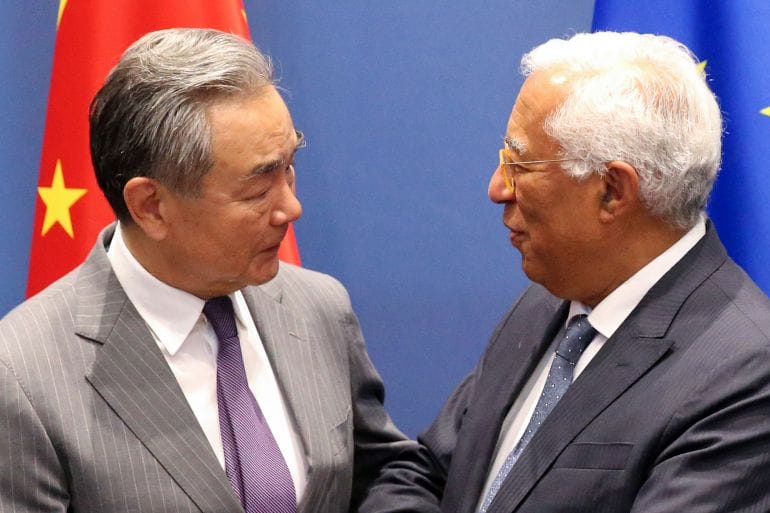Jeffrey Epstein presents elements of a classic conspiracy
These are salad days for the likes of Joseph Uscinski, who spends his time peering down rabbit holes and poking in the dark spaces where weird and woolly things grow.
There are loads of conspiracy theories out there, the granddaddy of them all being the conjecture surrounding John F. Kennedy’s assassination. But most tend to fade and be forgotten, said Uscinski, who teaches political science at the University of Miami, where he studies public opinion and mass media, with a focus on conspiracies.
“Only a select few will attract a large number of believers, have movies made… get talked about by politicians,” Uscinski said.
The Jeffrey Epstein saga has all the elements of one of those top-shelf intrigues, with an added Shakespearean twist — a president whose political rise has been fueled by outlandish conspiracy theories and now faces a backlash from some of his most faithful devotees, as he tries to wriggle free from a deceitful web of his own design.
Delicious, especially if you enjoy your schadenfreude served piping hot.
The known facts are these:
Epstein was an eye-poppingly wealthy financier, luxe man-about-Manhattan and convicted sex offender who sexually trafficked women and girls. In 2008, he agreed to an exceedingly lenient plea deal with federal prosecutors that resulted in a 13-month prison sentence, with freedom granted 12 hours a day, six days a week, under a work-release program.
A decade later, an investigative reporter at the Miami Herald identified scores of alleged survivors of sexual abuse by Epstein and some of his associates. In 2019, a new federal criminal case was brought against him. About a month after being arrested, Epstein was found dead in his cell at a jail in New York City. Investigators ruled Epstein’s death a suicide.
An A-list fixture of the upper-crust social scene, Epstein has been linked in court documents with a galaxy of celebrities from the worlds of Hollywood, business and politics. It’s an article of faith among some true believers — particularly within the MAGA movement — that a secret list of those serviced by Epstein’s sexual enterprise exists somewhere in the bowels of the federal government, hidden by agents of the hated, anti-Trump “deep state.”
In a Fox News interview in February, Atty. Gen. Pam Bondi said a list of Epstein’s clients was “sitting on my desk right now to review,” with its public release seemingly just a matter of time.
Then, like one of Trump’s threatened tariffs, the list — or “list” — abruptly vanished. There was no such thing, the Justice Department announced earlier this month, along with a finding that Epstein had, in fact, killed himself and was not, as some assert, murdered by forces wishing to silence him.
A piqued president urged everyone to move on and forget about Epstein. “Somebody that nobody cares about,” sniffed Trump, who moved in many of the same social circles as Epstein but now downplays their yearslong friendship.
All in all, conspiratorial catnip.
“Saying there are files and then saying there aren’t files… setting up some expectation for revelations and then insisting that actually there’s nothing there” has only deepened the well of suspicion, said Kathryn Olmsted, a UC Davis conspiracy expert who’s studied past instances of government deflection and deception involving the CIA and FBI, among others.
Unlike some of the crackpot stuff she’s heard — like Bill and Hillary Clinton murdering Joan Rivers to cover up Michelle Obama’s transgender identity — the conspiracy theories surrounding Epstein have at least some grounding in reality.
“He was very rich and powerful and he associated with some of the most powerful and richest people in the world, including members of both the Democratic and Republican parties,” Olmsted said. “And he was trafficking girls. There’s an actual crime at the heart of this. It’s not just something that people have made up out of thin air.”
That’s the thing that gives the Epstein conspiracy theories their distinctly frothy frisson: a blending of vital ingredients, one very old and the other comparatively new.
False allegations of child abuse date back to the blood libel of the Middle Ages and the assertion that Jews tortured and murdered Christian children as part of their ceremonial worship. From there, a through line can be traced all the way to the 2016 “Pizzagate” conspiracy, which claimed that Hillary Clinton and her top aides were running a child-trafficking ring out of a Washington pizza parlor.
Truly vile stuff.
Take that ancient trope and marry it to a modern lack of faith in the federal government and its institutions and you’re gifted with an endless source of lurid speculation.
“The number of threads that you can pull out of [the Epstein] fabric are many,” said retired University of Utah historian Robert Goldberg, another conspiracy expert. “And they’re going to be long.”
Democrats, for their part, are eagerly fanning the controversy, as a way to undermine Trump and drive a wedge in his granite-firm base.
“He said he was going to release [the complete Epstein files] and now he’s saying there’s nothing to see here and appears to be wanting to sweep the whole thing under the rug,” Maryland Rep. Jamie Raskin, who played a prominent role in the Jan. 6 congressional hearings, taunted on MSNBC. “There is overwhelming bipartisan, popular demand, congressional demand, to release all of this stuff.”
Indeed, Trump need only look in one of his gilded mirrors to see what’s driven years of fevered Epstein obsession.
“He built a coalition of people who have these beliefs,” said the University of Miami’s Uscinski. “And I think he’s learned that once you build a coalition of conspiracy theorists, you can’t get them to [stop believing]. They came to him because he was telling them what they want. He can’t turn around and do the opposite now.”
Oh, what a tangled web we weave…


